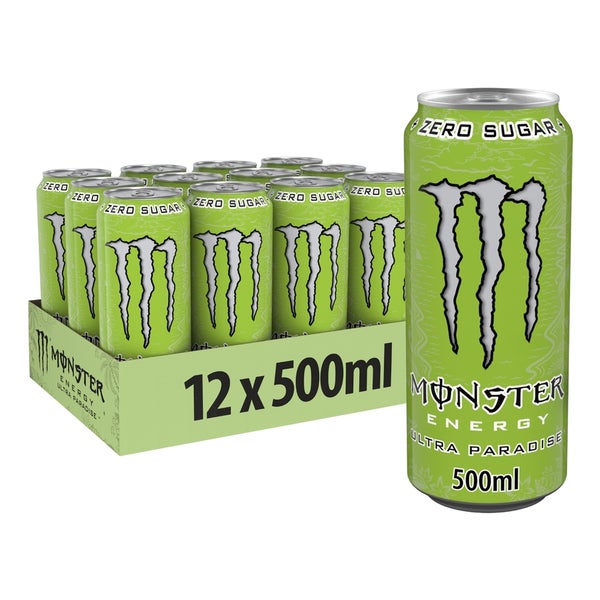Introduction to Energy Drinks and Their Popularity
2 energy drinks a day! Energy drinks have surged in popularity over the past few decades. They are marketed as a quick solution to combat fatigue and enhance mental alertness. These drinks often appeal to young adults, athletes, and anyone seeking an extra energy boost to get through a busy day or a long night. With catchy names, vibrant packaging and promises of improved performance, it’s not hard to see why they’ve captured the attention of millions worldwide.

Consumers often reach for 2 energy drinks a day, sometimes more, without fully understanding the potential health impacts. The reasons behind this frequent consumption vary. Some people use them to stay awake during long shifts at work, while others seek an edge in their workouts. Students might use them to pull an all-nighter before an exam. The diverse appeal of energy drinks ties back to aggressive marketing and the allure of increased productivity and performance.
Despite their popularity, it’s important to be well-informed about what energy drinks contain and how they can affect your body, especially when consumed regularly. This blog will explore the composition of energy drinks, their short-term effects, the potential long-term health risks associated with them, and what happens when someone consumes 2 energy drinks a day. We’ll also discuss some healthier alternatives and provide recommendations for those who choose to use energy drinks. Understanding these factors can empower you to make better choices for your health and well-being.
Key Ingredients in Energy Drinks
Energy drinks are known for their unique blend of ingredients. These components often include caffeine, sugar, taurine, vitamins, and various herbal extracts.
Caffeine
Caffeine is the star player in energy drinks. It is a powerful stimulant that targets the central nervous system. A typical energy drink can contain up to 80-200 mg of caffeine. This equals about 1-2 cups of coffee. The caffeine helps to ward off tiredness and maintains alertness.
Sugar
Sugar is another common ingredient. It adds sweetness and provides a quick energy surge. However, sugar content in energy drinks can be high. This may lead to a rapid increase in blood sugar levels.
Taurine
Taurine is an amino acid that is naturally found in the body. In energy drinks, it is said to support neurological development and regulate water and mineral salts in the blood.
Vitamins
Many energy drinks are also packed with B-vitamins. These vitamins aid in converting food into energy. They play a role in brain function and DNA synthesis.
Herbal Extracts
Herbal extracts, like ginseng and guarana, are often included too. They are believed to have natural energy-boosting properties. However, the effects of these herbs when combined with caffeine and sugar are not fully understood.
Each ingredient plays a role in the energy-boosting promise of these drinks. Yet, 2 energy drinks a day can expose the body to excessive levels of these substances. It is vital for consumers to understand what they are ingesting and the potential effects on their health.

Short-Term Effects of Energy Drink Consumption
Consuming energy drinks can give an immediate jolt of energy. This is mainly due to caffeine. Caffeine quickens your heartbeat and makes you feel alert. Also, sugar in these drinks can give you a quick energy spike. But this sugar rush may soon crash, leaving you tired again.
After drinking energy drinks, some people might feel jittery or nervous. This is a common side effect of caffeine. Others may experience increased urination. This is because caffeine is a diuretic. It can lead to dehydration if not careful. A few might also face digestion issues, like an upset stomach.
For those drinking 2 energy drinks a day, these effects can be more intense. They may face increased blood pressure and heart rate. This could be risky for people with heart conditions. Constant high sugar intake may affect insulin sensitivity as well. This makes it harder for your body to manage sugar levels.
Consuming 2 energy drinks a day could also affect sleep patterns. It can make it hard to fall asleep or stay asleep. Poor sleep can lead to a cycle of fatigue. This might cause one to reach for more energy drinks. It’s a loop that can harm health over time.
In summary, the short-term effects of energy drink consumption can include:
- A quick energy boost
- Jitters or nervousness
- Increased urination and potential dehydration
- Digestive discomfort
- High blood pressure and heart rate
- Disrupted sleep patterns
These effects show the importance of moderation and awareness. It’s essential to understand how energy drinks affect your body right away.
Long-Term Health Risks Associated With Regular Energy Drink Use
Regular intake of energy drinks, particularly when consuming 2 energy drinks a day, can lead to several long-term health issues. While the immediate effects can seem tolerable to some, the cumulative impact over time may pose serious concerns. Below, we delve into the possible long-term health risks associated with daily consumption of multiple energy drinks.
- Cardiovascular Issues: High levels of caffeine and sugar can strain the heart over time. This can increase the risk of heart disease or stroke. Regular consumers might face heart palpitations or high blood pressure.
- Diabetes Risk: Drinking energy drinks every day can dramatically increase sugar intake. This can lead to insulin resistance, which can develop into type 2 diabetes.
- Kidney Damage: The high caffeine content in energy drinks acts as a diuretic and can tax the kidneys. Chronic use may lead to kidney stones or other renal problems.
- Mental Health Concerns: Anxiety and stress can be exacerbated by the stimulating effects of caffeine. Prolonged consumption might also raise the risk of depressive symptoms or mood disorders.
- Dental Problems: The acidity and sugar in energy drinks can harm tooth enamel. This might result in tooth decay and cavities with regular use.
- Weight Gain: Energy drinks are high in calories due to sugar content. Frequent consumption can contribute to obesity, especially if not coupled with adequate physical activity.
- Nutritional Deficiencies: Relying on energy drinks for a boost may lead to neglecting healthier foods. This can cause nutritional deficiencies over time.
It is evident that drinking 2 energy drinks a day is not a habit without consequences. Consumers should weigh the immediate benefits against these potential long-term health risks. In the next sections, we’ll explore how two daily energy drinks specifically impact the body and what healthier alternatives are available.

Examining the Impact of Two Energy Drinks a Day
When dissecting the impact of consuming 2 energy drinks a day, the compounded effects of their ingredients are central. Here is a breakdown of how these ingredients may affect the body with such regular use:
- Overstimulation of the Central Nervous System: The high caffeine levels from two drinks can lead to overstimulation. This means trouble with sleeping, feeling overly anxious, and potential for caffeine dependence.
- Blood Sugar Spikes and Crashes: Back-to-back energy drinks cause sugar levels to peak and plummet. This rollercoaster can affect mood and energy, often leading to fatigue once the sugar rush fades.
- Effects on Heart Health: Double doses of caffeine and sugar can raise heart rate and blood pressure. For those with underlying heart issues, this can be especially hazardous.
- Interference with Digestion: Excessive sugar and caffeine might disrupt normal digestion. Symptoms could include nausea, acidity, or diarrhea.
- Impact on Hydration: Caffeine’s diuretic effect may intensify with two drinks. This leads to increased urination and risks dehydration if fluid intake is not increased.
- Nutrient Overload or Deficiency: Getting a day’s worth of vitamins in one go might sound efficient, but it can lead to imbalances. Too many B-vitamins can cause nerve damage, while lacking others might affect metabolism.
Routine consumption of 2 energy drinks a day may also promote poor dietary habits, as individuals might skip meals or choose less nutritious options due to appetite suppression or a false sense of energy sufficiency.
Overall, consistency in such habits is not just a matter of bearing side effects temporarily, but potentially altering the body’s functioning and health state over time. Responsible consumption and awareness of these impacts are crucial for those who include energy drinks in their daily routine.
Alternatives to Energy Drinks for Boosting Energy
While energy drinks may offer a quick fix, healthier alternatives exist. These alternatives can boost your energy without the adverse effects of consuming 2 energy drinks a day. Consider incorporating these options into your daily routine for a more sustained energy lift.
Stay Hydrated with Water
Proper hydration is vital for maintaining energy. Water aids in bodily functions and can prevent the tired feeling that comes from dehydration.
Natural Fruit Juices
Fruit juices provide vitamins and natural sugars that can give you a gentle energy boost. Choose juices with no added sugars for the best benefits.
Herbal Teas
Herbal teas like green tea contain less caffeine than energy drinks. They can refresh you while providing health advantages from their antioxidants.
Nutrient-Rich Snacks
Snacks such as nuts, yogurt, or whole grain toast deliver nutrients. They slowly release energy, keeping you fueled for longer periods.
Regular Exercise
Engaging in regular exercise can increase your stamina and energy levels over time. Even a short daily walk can make a difference.
Quality Sleep
Prioritize sleep for better energy throughout the day. Most adults need 7-9 hours of quality sleep each night to function well.
Mindfulness and Breathing Techniques
Mindfulness practices like meditation or deep-breathing can reduce stress. This helps maintain energy by preventing mental fatigue.
By choosing these healthier alternatives, you can avoid the risks tied to consuming 2 energy drinks a day. They support overall well-being while also providing the energy boost you need.
Recommendations for Safe Consumption
With the known risks of having 2 energy drinks a day, it’s crucial to practice safe consumption. Here are some recommendations:
- Limit Intake: Aim to drink only one energy drink on days when you truly need it. This helps reduce health risks.
- Check Labels: Always read the labels for caffeine and sugar content. Know what you’re putting into your body.
- Avoid Mixing: Don’t mix energy drinks with alcohol or other stimulants. This can be dangerous.
- Monitor Your Body: Pay attention to how your body reacts to energy drinks. If you experience adverse effects, cut back.
- Choose Smaller Sizes: If you decide to have an energy drink, go for a smaller size to limit exposure to high levels of ingredients.
- Consult Healthcare Providers: If you have any health issues, talk to your doctor before consuming energy drinks.
By following these tips, you can enjoy the benefits of energy drinks without overloading your body and compromising your health.
Conclusion: Balancing Energy Needs and Health
Finding the right balance between meeting energy needs and maintaining good health is crucial. This blog has reviewed the effects of consuming 2 energy drinks a day. We’ve seen the potent blend of caffeine, sugar, taurine, and other ingredients that can help fight off tiredness. Yet, there are potential downsides. Short-term, you might feel a burst of alertness but also face jitters or dehydration. Long-term, the risk rises for heart issues, diabetes, and sleep disturbances.
If you feel you need extra energy, consider safer alternatives. Drink plenty of water, enjoy natural fruit juices, or have a small, healthy snack. Regular exercise and quality sleep are important too. They help improve energy levels naturally.
Be mindful when you reach for an energy drink. Check the contents, limit how much and how often you drink them. If you notice negative reactions, speak with a healthcare provider. Remember, your health should always come first. By making informed choices, you can enjoy a boost of energy without harming your body.
